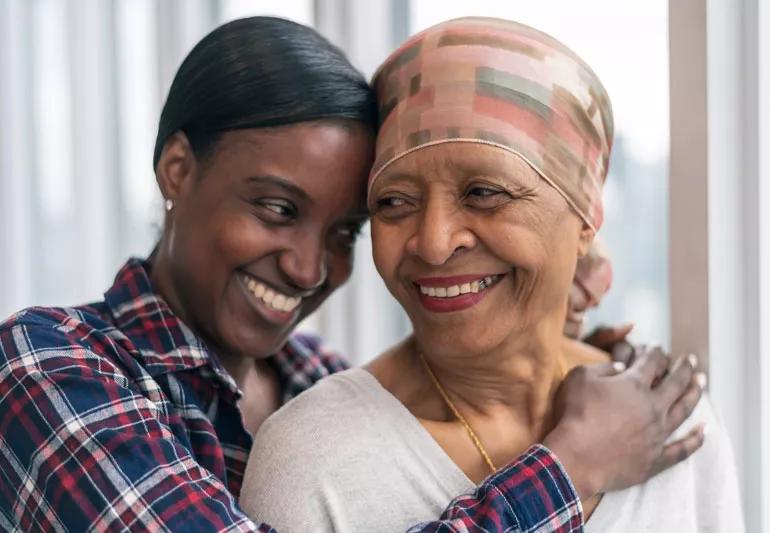Ways to make your treatment more comfortable

Image content: This image is available to view online.
View image online (https://assets.clevelandclinic.org/transform/099083f0-1c92-4b20-8ec6-0e1d820d616a/cancerSupport-1141776184-770x553_jpg)
Cancer patient with her daughter offering support
You’ve just been diagnosed with cancer and chemotherapy is part of your treatment. Getting this news is scary. The thought of chemotherapy is frightening too.
Advertisement
Cleveland Clinic is a non-profit academic medical center. Advertising on our site helps support our mission. We do not endorse non-Cleveland Clinic products or services. Policy
Yet the more you know about chemotherapy the less intimidating it will become for you, says cancer care nurse Josette Snyder, BSN, MSN, AOCN. There are many resources to help you through the process and understand what’s happening.
If you or someone you know is about to go through chemotherapy for the first time, here are some tips our patients find helpful.
Advertisement
Remember there are many avenues of support for you during this time. Never hesitate to ask for help. It’s there for you!
Advertisement

Delivered every Tuesday!
Sign up for our Health Essentials emails for expert guidance on nutrition, fitness, sleep, skin care and more
It's a letter about the news!
Learn more about our editorial process.
Advertisement
From a thoughtful note to a special pillow, these items are a win
10 things that can help ease your mind and keep you comfortable
Various prescription medications and recreational drugs can have an impact
This treatment can help those with cancer keep some of their hair
Why some treatments need a little extra caution
First, remember you're in charge!
New research weighs chemotherapy risk vs. benefits
Most recommended precautions center around minimizing bruising or swelling
Type 2 diabetes isn’t inevitable with these dietary changes
Applying a hot or cold compress can help with pain
Pump up your iron intake with foods like tuna, tofu and turkey